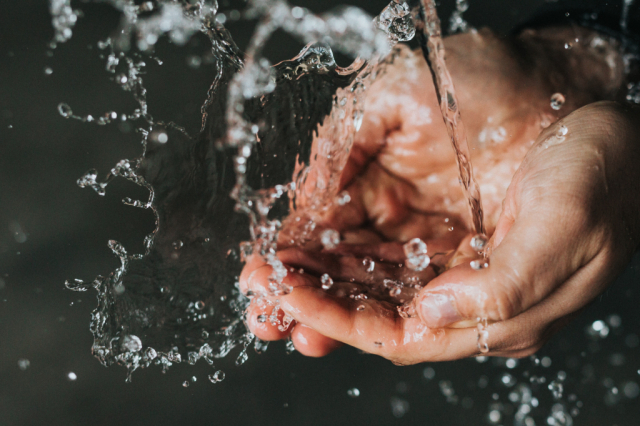Still Thirsting for Justice: Roma Denied Access to Clean Water and Sanitation Across Europe
09 August 2023

“You don’t have to be a scientific researcher or a water expert to see that turning off public wells in any community or settlement during a heatwave and denying the people living there of drinking water anywhere in the world is an inhuman act.” That was the verdict of the late Hungarian Roma rights activist Jenő Setét, after the local authorities, in sweltering temperatures, cut water supplies to residents of Romani neighbourhoods of Gulács and Onga in eastern Hungary in August 2017.
This and other similar scandals were not just rogue actions by racist mayors. They were symptomatic of a much wider abuse of the right to clean water and sanitation that affects Roma across Europe; and testament to the failure of the EU Framework for Roma inclusion to make a difference to the lives of Europe’s largest ethnic minority.
Denial of access to clean water is one aspect of a wider pattern of official policies and institutional habits that perpetuate environmental racism against Roma, forcing many to live in hazardous conditions that damage their health, endanger their lives and violate their fundamental human rights.
ERRC research across seven European countries, further confirmed that is not a matter of droughts and other sundry acts of nature, but a deliberate consequence of decision-making processes that deny Romani citizens the right to water, a right described by the UN as “indispensable for leading a life in human dignity and a prerequisite for the realization of other human rights”.
Denied access: snapshots from across Europe
The Roma Civil Monitor found that in Bulgaria, the Czech Republic, France, Hungary, Italy, Romania and Slovakia, even where safe water supply and sanitation services were available to non-Roma households, Roma were often systemically discriminated against in their access to them. The Fundamental Rights Agency found the gap between Roma and the general population, when it comes to clean water, has remained highest in Romania, where an estimated 68% of Roma in 2016 were living without tap water in their dwelling: “To put this in a global context, Roma in Romania – the country with the highest number of Roma in the EU – enjoy access to safe water in rates similar to those in Bhutan, Ghana or Nepal.”
Léo Heller, UN Special Rapporteur on the human rights to safe drinking water and sanitation, found the living conditions of Roma in Portugal “disconcerting and certainly comparable to the worst of situations I have seen thus far in previous missions to much less developed countries in Central Asia, Southern Africa and Central America”.
In Italy, the living conditions in both official and unofficial ‘nomad camps’, where Roma live segregated lives, have long been recognised as especially precarious. As far back as 2005, research has shown higher incidences of asthma, diarrhoea and bronchitis among children living in the camps, and established the connection with overcrowding, rats, the presence of stagnant water, the state of the dwellings, the limited access to proper sanitation, and the lack of drinking water. Over the years, mass evictions have only served to exacerbate the situation. National and international organisations have documented the appalling living conditions inside ‘authorised camps’ – overcrowded, in poor state of repair, with ever-deteriorating hygiene and sanitary conditions. Conditions in the segregated emergency shelters and unofficial camps are even worse in terms of access to clean water and sanitation.
The Roma Civil Monitor uncovered a disturbing trend in France where mayors and municipal staff, openly declared that if they offered sanitation services and facilities to dwellers in shantytowns, they could no longer proceed with speedy mass evictions. In these conditions, the Romani inhabitants have to trudge often long distances to transport water from pumps and fire hydrants.
European Parliament: Conservatives dilute Drinking Water Directive
In 2018 Members of the European Parliament voted on the Drinking Water Directive (DWD) on 23 October, some four years after 1.8 million citizens mobilized behind the first successful European Citizens' Initiative (ECI) Right2Water and called on the EU to recognize access to safe water as a basic human right. The European Commission welcomed the vote as proof that the EU was listening to citizens’ demands. Commissioner Karmenu Vella stated that, “thanks to EU laws, most people living in the EU already enjoy very good access to high quality drinking water.”
However, the reality behind the blithe expression ‘most people’ has long excluded hundreds of thousands of racialised and excluded ‘others’ across the European Union; and the resolution was criticised by the European Federation of Public Service Unions (EPSU), who expressed their disappointment “that a majority of the right-wing in the European Parliament put time and effort into watering down the demands of civil society”. Left and Green MEPs also expressed strong regrets that Parliament did not support their calls to introduce concrete obligations on member states to act on this directive and to guarantee universal access to water. Not much changed in the interim.
Inexcusable failures
Roma inclusion efforts in member states and candidate countries have failed to make a dent on environmental racism. By the European Commission’s own reckoning, the first EU Framework on Roma inclusion was an ‘inexcusable’ failure, and the new 10-year plan to support Roma in the EU is unlikely to deliver. Much was made of the Framework’s alignment with the UN Sustainable Development Goals (SDGs), including SDG 6 to achieve universal and equitable access to safe and affordable drinking water, and adequate and equitable sanitation and hygiene for all. On current form, it is unlikely that SDG6 will be achieved in Europe for marginalised Romani communities by 2030, for the conversation around environmental justice for Roma has barely begun, in either Brussels or the capital cities of EU member states.
This is an abridged English-language version of the article Wenn Diskriminierung durstig macht, first published in the Institut für den Donauraum und Mitteleuropa (IDM) 02/2023 issue of InfoEuropa, Kampf ums Wasser.




